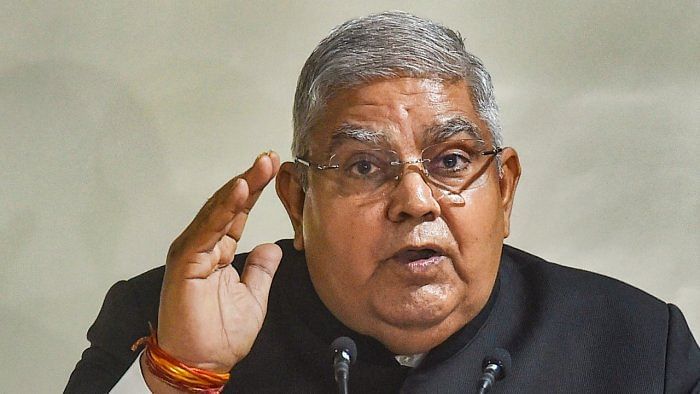
In a veiled criticism of the BBC documentary on the 2002 Gujarat riots, Vice President Jagdeep Dhankhar on Tuesday said one cannot “run down” the Supreme Court and two decades of “thorough investigation” in the name of “expression.”
Addressing students at the IIT-Madras after inaugurating the Center for Innovation Facility, Dhankhar said India has a robust court system and things are realised for the high and mighty including the Prime Minister.
“For two decades, the issue was deliberated in judicial quarters, thoroughly investigated at all levels. The highest court of the land, the highest court of the largest democracies pronounced on all fronts in 2022 finally, and we have a narrative being set afloat by a documentary, some people say this is an expression,” the VP said, referring to the BBC documentary.
“So in the name of expression can you run down by the Supreme Court, can you run down two decades of thorough investigation? This is playing politics the other way around. When people choose to play politics the other way around, the young minds here and outside are intellectually equipped to challenge them,” he added.
The documentary, which was banned in India, talks about Prime Minister Narendra Modi’s alleged role in the 2002 riots.
In an apparent reference to breach of privilege against MPs of Rajya Sabha, Dhankhar, referring to Article 105 of the Constitution that protects MPs from criminal litigation, said this is a great privilege and the common man cannot go to court or act against the MP even if they are hurt.
“I want young minds to understand it. I want my journalist friends (to understand), I have seen some editorials and have been pained by them…Hauling up someone for breach of privilege is not throttling of expression.
“It is throttling dumping of information which is not authenticated and which is recklessly made misusing the platform of Parliament,” he said.
Talking about frequent disruptions in Rajya Sabha, the Vice-President questioned the need for members trooping into the well of the House when framers of the Constitution decided on contentious issues, without shouting, without sloganeering, and without challenging the chair.
“Why should we do it now? This temple of democracy is for dialogue, debate, discussion and deliberation. This is not for disturbance and disruption. But I'm surprised, this conduct does not evoke your response,” he said.
Noting that taxpayers’ money in crores goes into functioning of the Parliament, the VP asked the students to get in every mode of communication, social media or otherwise help generate an ecosystem so that the purity and sanctity of temples of democracy, the parliament and legislature is not outraged.
“Let us have debate, dialogue, discussion and deliberation there. It is a place for free exchange of expressions. I need your support. I need the support of young minds and I know if you choose to do it, it will become a mass movement. And that is why the representatives will be held accountable,” he said.
Dhankhar asked students why is that India allows some voices that “taint our system, tarnish our democracy, rundown our success” and said everyone should be proud of being Indians and accomplishments as a nation.